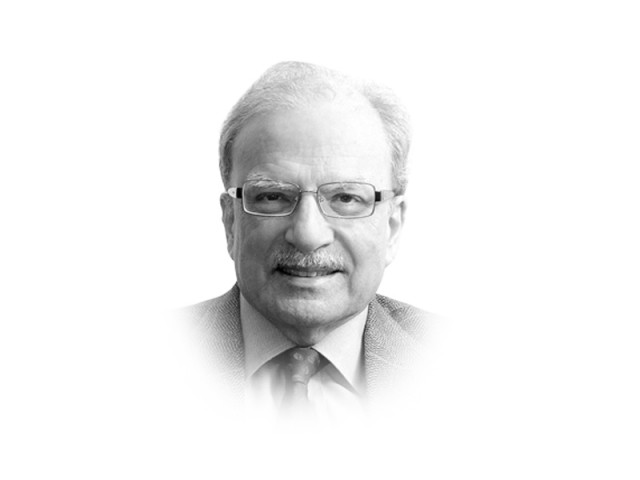Reasonable politics, bad economics
The country is isolated as never before in its more than six decades of history.

Which of the several roads should or could or would Pakistan take out of the crossroads? There has been much written recently on the country in foreign journals, magazines and newspapers to answer this question. Most of the writings suggest, either explicitly or implicitly, that the country is faced with a serious existential threat. A few serious books have also appeared that come to different conclusions about the country’s future. For instance, Anatol Lieven in his book, Pakistan: A Hard Country, decides that there are certain things about Pakistan’s society that would make it possible for it to survive even though the times are difficult. It is a hard country to understand but also a hard country to collapse and fall apart. Bruce O Riedel, once a close adviser of President Barack Obama and his administration on Pakistan and Afghan affairs, reaches the opposite conclusion in his book, Deadly Embrace: Pakistan, America and the Future of Global Jihad. Pakistan, he believes, wrongly I think, will not be able to carry the weight it currently bears and simply collapse from fatigue and lack of endurance. By collapse he means the destruction of the liberal political and economic order that will not be able to withstand the force of radical and extremist Islam. While Lieven who knows Pakistan well, having written on the country for many years for the Financial Times, and understands well the internal political and economic dynamics, Riedel’s knowledge of the country is considerably more superficial. As the title of his book suggests, his focus is on Pakistan’s stance towards what was once called America’s “war on terror”.
It would be right to round of this discussion with some of the recent writings on Pakistan by reference to Maleeha Lodhi’s compilation of the writings of a number of serious Pakistani scholars. The book with an important contribution by the editor, appeared under the title of Pakistan: “Beyond the Crisis”. As the title suggests, the county is in a state of crisis — a serious one as analysed by the various contributors to the volume — but the ‘beyond’ is more hopeful than indicated by Riedel and several other pessimists. The country will pull through by the adoption of intelligent policies by a wise leadership working within a participatory system of governance. The three key phrases in this formulation are the ‘system of governance’, ‘wise leadership’, and ‘intelligent policies’. These will be the three constructs on which I will base my analyses. Let me begin with the system of governance.
After more than six decades of experimentation, Pakistan seems to be settling down in politics. The earlier attraction for strongman rule is no longer there. There is now a consensus that competitive politics is the way to go. This means winning people’s support by exciting their interest in what elected politicians can do for them once they attain office. If there is a perception that those who have been voted into power are failing to deliver what they were expected to provide, they can be replaced when the time comes to go back to the polls. In between elections, a free media and free civil society can be expected to keep some check on the working of the political system. This is the way democracy is supposed to work and has begun to work in Pakistan.
But there is more to democracy than periodic elections and the watchful eye of the media and civil society. This was underscored by Fareed Zakaria some years ago in a powerful book about the needs of a true liberal democracy. It needs more than periodic free and fair elections. It requires rule of law, which ensures accountability on the part of those who occupy public positions. This can only be provided by a legal system that has a judiciary that can dispense justice without fear or favour. This condition is not fully met in Pakistan in spite of the hard-won independence by the upper echelons of the judicial system. The part of the legal system that comes into contact with the ordinary citizen is still not delivering justice in Pakistan. The citizenry is not being well served by the lower levels of the legal system.
There is also much talk of corruption and lack of accountability at all levels of government. Imran Khan, in his well-attended public meeting in Lahore, had a great deal to say about corruption, knowing full well that that is what people wanted to hear. But how to translate the desire for clean governance into some kind of policy and institutional framework? India, across the border, is also struggling with these questions although its governance structure is more developed than that of Pakistan’s. In other words, while the system of governance in Pakistan now has the trappings of a dramatic structure, it is still underdeveloped. Much more needs to be done. Will the political leadership have the wisdom to move forward in the right direction? Take the right road out of the crossroads?
(To be concluded)
Published in The Express Tribune, November 21st, 2011.















COMMENTS
Comments are moderated and generally will be posted if they are on-topic and not abusive.
For more information, please see our Comments FAQ